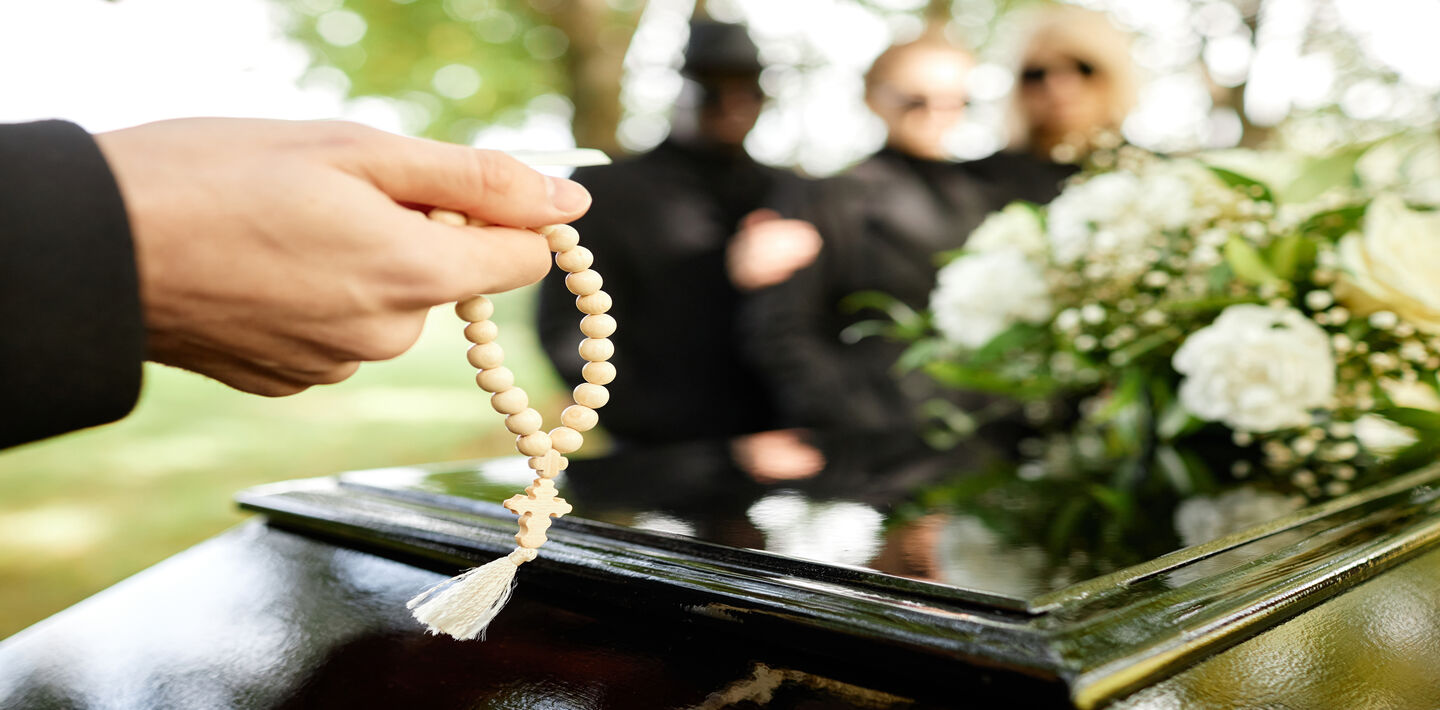
Christian funerals hold deep significance, blending tradition, faith, and community. But what exactly happens during these ceremonies? Understanding the customs can help demystify the process and provide comfort. From hymns to eulogies, each element serves a purpose. Did you know that Christian funerals often include a wake? This gathering allows loved ones to share memories and offer support. The service itself typically features scripture readings, prayers, and a sermon. Ever wondered why flowers are so common? They symbolize life and resurrection. Burial or cremation follows, depending on personal or denominational preferences. Curious about the role of the clergy? They guide the service, offering spiritual solace. Whether you're planning a funeral or attending one, knowing these facts can make the experience more meaningful.
Christian Funerals: A Deep Dive
Christian funerals are rich in tradition and symbolism. They offer comfort to the grieving and honor the deceased. Here are some fascinating facts about Christian funerals.
Historical Roots
Christian funerals have evolved over centuries, but many practices remain rooted in early traditions.
- Early Christians buried their dead in catacombs. These underground cemeteries were safe havens during times of persecution.
- The use of coffins dates back to ancient Rome. Early Christians adopted this practice, which continues today.
- Funeral processions were common in medieval times. These processions often included the entire community, reflecting the collective mourning.
Symbolism and Rituals
Christian funerals are filled with symbols and rituals that convey deeper meanings.
- The cross is a central symbol. It represents Jesus' sacrifice and the hope of resurrection.
- Candles are often used. They symbolize the light of Christ guiding the deceased to eternal life.
- Holy water is sprinkled on the coffin. This act recalls the deceased's baptism and entry into the Christian faith.
The Funeral Service
The structure of a Christian funeral service is designed to offer solace and hope.
- Scripture readings are a key component. Passages from the Bible provide comfort and remind mourners of God's promises.
- Hymns and spiritual songs are sung. Music plays a vital role in expressing grief and hope.
- Eulogies honor the deceased. Friends and family share memories and celebrate the person's life.
Burial Practices
Burial practices vary among Christian denominations but share common elements.
- Graves are often oriented eastward. This tradition symbolizes the resurrection, as Christians believe Christ will return from the east.
- Cremation is increasingly accepted. While once controversial, many denominations now allow cremation.
- Grave markers often feature crosses. These markers serve as a testament to the deceased's faith.
Mourning and Remembrance
Christian funerals extend beyond the service, encompassing periods of mourning and remembrance.
- The wake is a time for gathering. Friends and family come together to support one another and remember the deceased.
- Memorial services may be held later. These services provide additional opportunities for reflection and healing.
- Anniversary masses are common in Catholicism. These masses honor the deceased on the anniversary of their death.
Cultural Variations
Christian funerals can differ widely depending on cultural and regional practices.
- In Mexico, the Day of the Dead blends Christian and indigenous traditions. Families honor their deceased loved ones with altars and offerings.
- In Ghana, funerals are elaborate celebrations. These events can last several days and include music, dancing, and feasting.
- In the Philippines, novenas are prayed for nine days. This practice helps the soul of the deceased on its journey to the afterlife.
Modern Adaptations
As society changes, so do some aspects of Christian funerals.
- Eco-friendly burials are gaining popularity. These burials minimize environmental impact and reflect a growing awareness of ecological issues.
- Virtual funerals have become more common. Technology allows distant relatives to participate in services via livestream.
- Personalized funerals are on the rise. Families incorporate unique elements to reflect the deceased's personality and interests.
The Role of Clergy
Clergy play a crucial role in Christian funerals, offering spiritual guidance and support.
- Priests and ministers lead the service. They provide comfort through prayers, readings, and sermons, helping mourners find peace.
Final Thoughts on Christian Funerals
Christian funerals offer a rich tapestry of traditions and customs that provide comfort and meaning during a difficult time. From the rituals of the wake to the symbolism of the funeral service, every element serves a purpose. Eulogies and hymns celebrate the life of the deceased, while prayers and scriptures offer solace to the grieving. The procession to the cemetery and the graveside service bring a sense of closure. Understanding these practices can help you navigate the experience with greater ease and respect. Whether you're planning a funeral or attending one, knowing what to expect can make the process less overwhelming. Remember, these traditions are not just about mourning a loss but also about celebrating a life well-lived.
Was this page helpful?
Our commitment to delivering trustworthy and engaging content is at the heart of what we do. Each fact on our site is contributed by real users like you, bringing a wealth of diverse insights and information. To ensure the highest standards of accuracy and reliability, our dedicated editors meticulously review each submission. This process guarantees that the facts we share are not only fascinating but also credible. Trust in our commitment to quality and authenticity as you explore and learn with us.


